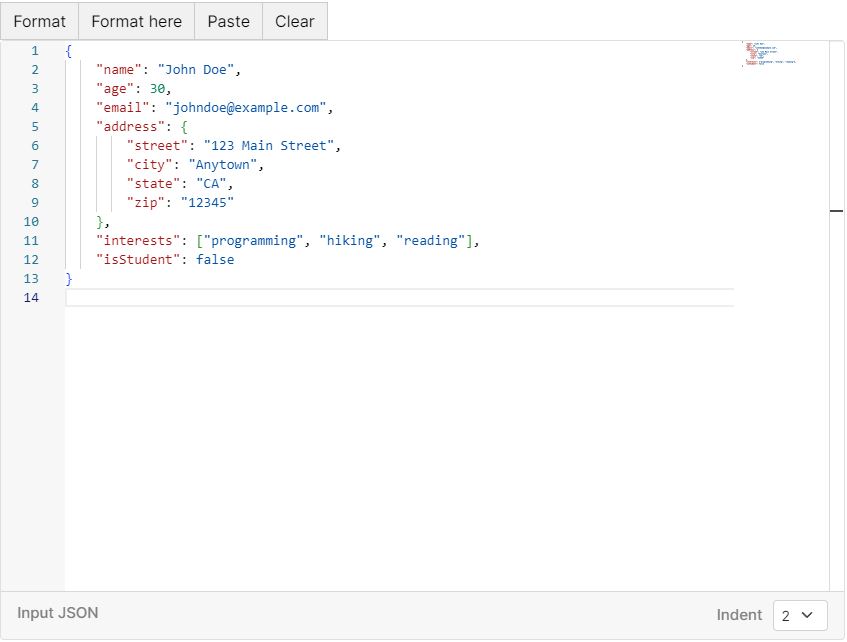🚀 Free JSON Tools Online
Transform your JSON data instantly with our powerful online tools! Format, validate, convert to Python/PHP/JavaScript/CSV, and beautify JSON data with just one click. No registration required - completely free for developers, data scientists, and web professionals. Boost your productivity with our lightning-fast JSON utilities!
JSON ↔ String
JSON ↔ Arrays
🎯 What is JSON?
JSON (JavaScript Object Notation) is the universal language of data exchange on the web! It's a lightweight, human-readable format that makes it easy to share and store structured data. Originally created for JavaScript, JSON has become the go-to standard for APIs, configuration files, and data storage across all programming languages and platforms.
🏗️ JSON Structure Made Simple
JSON uses a simple but powerful structure based on key-value pairs. Think of it like a dictionary where each word (key) has a definition (value). Keys and values are separated by colons (:), pairs are separated by commas, and everything is wrapped in curly braces {}. You can nest objects inside objects to create complex data structures. Here's a visual example:

📋 JSON Data Types
JSON supports six essential data types that cover most programming needs. While JSON is simple and text-based, it's incredibly versatile for data exchange. Here are the data types JSON supports natively:
- 📝 Strings: Text wrapped in double quotes ("hello world")
- 🔢 Numbers: Integers (42) and decimals (3.14)
- ✅ Booleans: true or false values
- ❌ Null: Represents empty or missing data
- 📦 Objects: Collections of key-value pairs {}
- 📋 Arrays: Ordered lists of values []
🚀 Why Choose JSON?
JSON has become the standard for data exchange for excellent reasons:
- ⚡ Lightning Fast: Small file sizes mean faster data transmission and processing
- 👀 Human Readable: Easy to read, write, and debug - no complex syntax to learn
- 🌍 Universal Language: Works with every programming language and platform
- 🔧 Developer Friendly: Built-in support in all modern programming languages
- 📱 Web Ready: Perfect for APIs, mobile apps, and web applications
💻 Programming Languages That Love JSON
JSON is the universal data format that works with virtually every programming language! Here are the most popular languages with excellent JSON support:
JavaScript: Since JSON originated in JavaScript, its integration is natural and it is widely used in web applications.
Python: Python has a built-in library called json that allows serialization and deserialization of JSON objects.
Java: In Java, you can use libraries like Gson or Jackson to work with JSON.
Rust: Rust provides libraries like Serde for JSON serialization and deserialization.
Ruby: Ruby includes a gem called JSON for working with JSON.
PHP: PHP provides built-in functions to encode and decode JSON data. Libraries like Symfony Serializer are also used.
C/C++: There are third-party libraries that allow you to parse and generate JSON in C and C++, such as jsoncpp.
Swift: In iOS app development, Swift uses the JSONSerialization framework to work with JSON.
Go (Golang): Go has a standard library called encoding/json that allows you to work with JSON efficiently.
C#: For .NET-based applications, the System.Text.Json library is used to work with JSON.
Kotlin: In Android app development, Kotlin uses libraries like Gson to manipulate JSON.
Haskell: the Aeson library is used to work with JSON.

